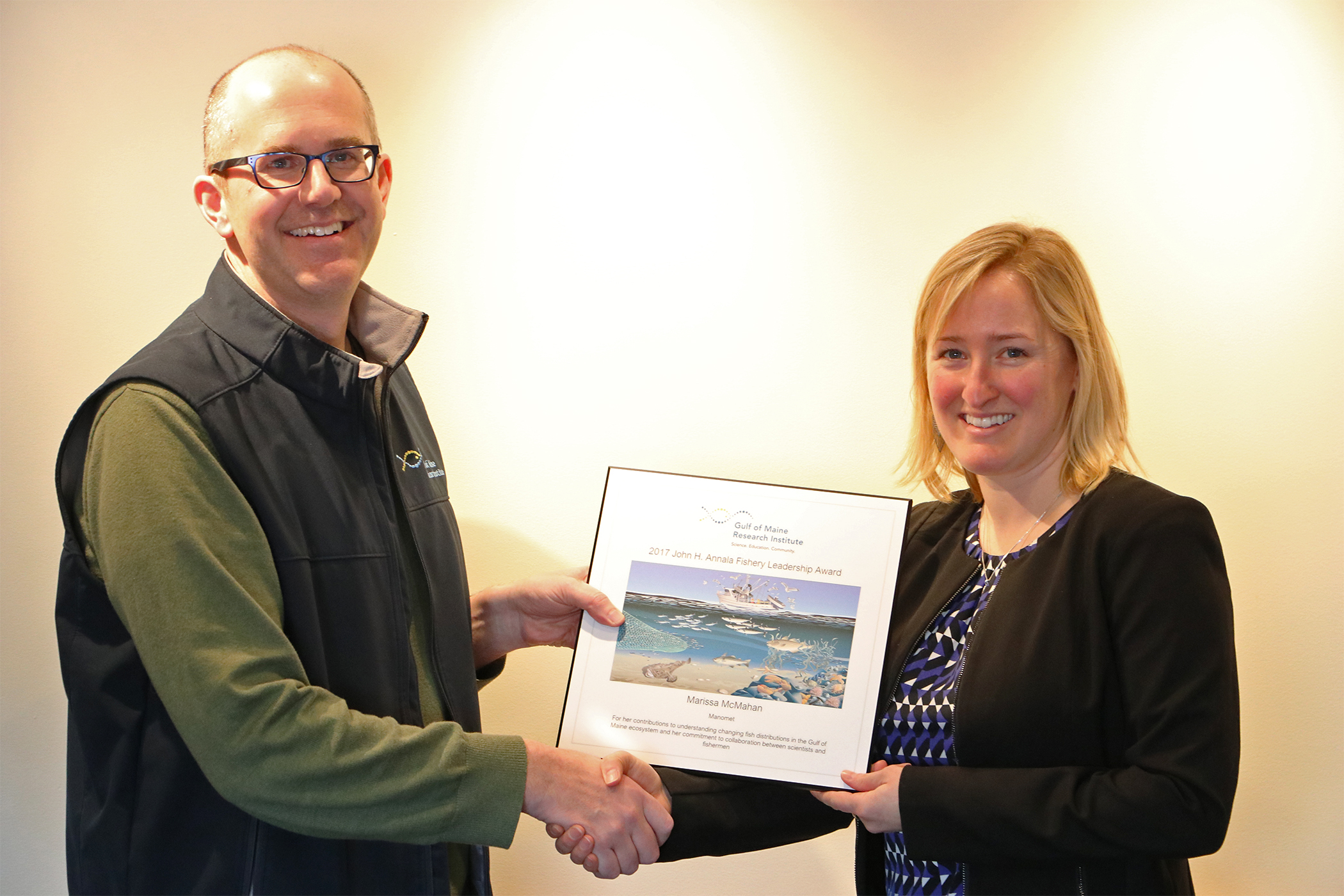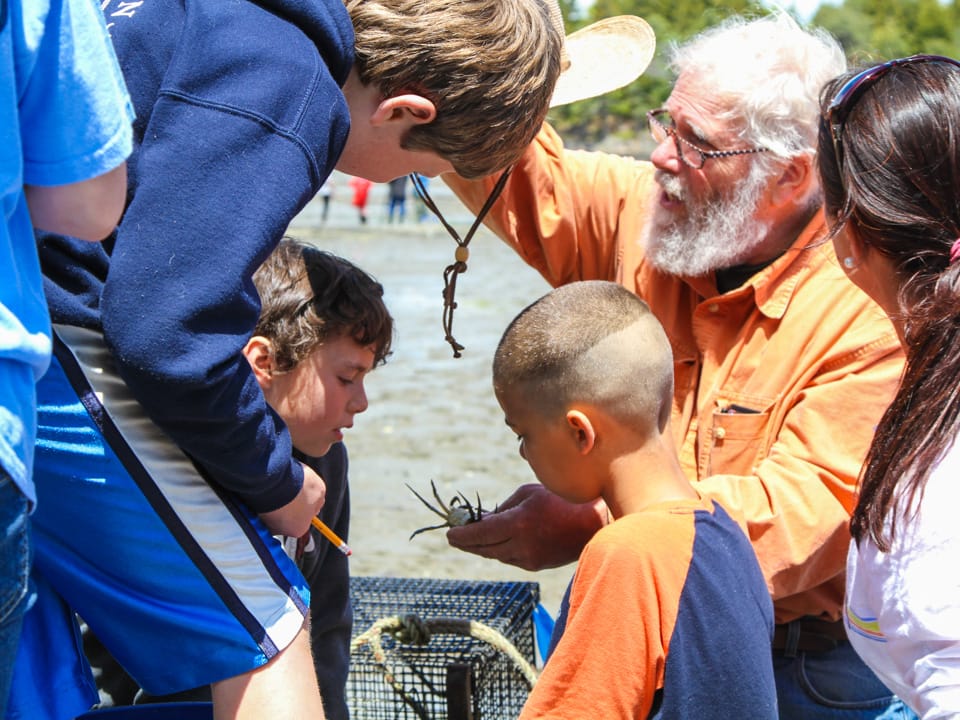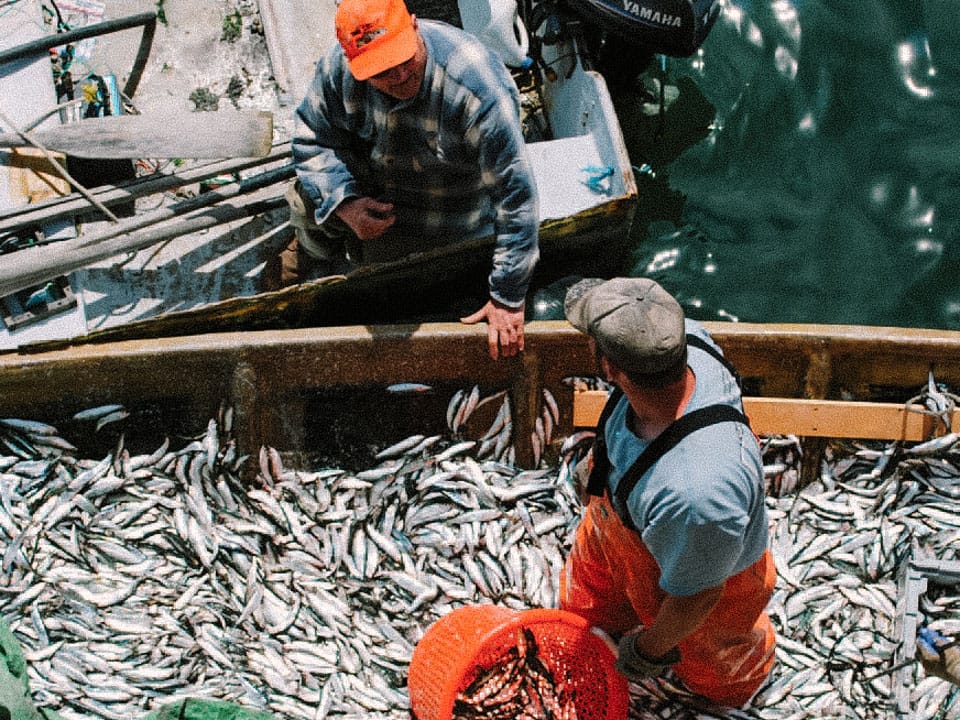Marissa McMahan, Senior Fisheries Scientist, recently received two prestigious awards for her fisheries research.
The Gulf of Maine Research Institute (GMRI) awarded McMahan the 2017 John H. Annala Fishery Leadership Award. This award was established in honor of GMRI’s founding Chief Scientific Officer and recognizes an early career fisheries scientist whose work has the potential to benefit the Gulf of Maine ecosystem and the communities that depend on it. The award states: “For her contribution to understanding changing fish distributions in the Gulf of Maine ecosystem and her commitment to collaboration between scientists and fishermen.”
McMahan noted how honored she is to receive the award: “It is particularly meaningful to me because I started my early scientific career at GMRI, at a time when John Annala was the Chief Scientific Officer. To later receive an award established in his honor is very special.”
McMahan was also the recipient of Manomet’s annual The Linda E. Leddy Fellowship for Sustainability. The award is given each year to a program staff member at Manomet who is supporting action on sustainability within a community or sector. As the recipient of the Leddy Award, McMahan will work with shell-fishermen to explore the viability of quahog aquaculture in Maine. This award honors Linda E. Leddy who served as President of Manomet from 1984 to 2008 and her vision for broadening Manomet’s mission from being a long-term environmental research and education organization to one focused on putting science to use in partnership with diverse stakeholders.
Maine’s clam industry centers mostly around the soft-shell clam, a lucrative fishery that is vital to the well-being of many coastal communities. However, the soft-shell clam industry has suffered recent declines due, in part, to predation by the invasive green crab, and also the poorly-understood milky ribbon worm. The northern quahog is a hard-shell clam that occurs in the western Atlantic from Nova Scotia to the Yucatan Peninsula. Unlike soft-shell clams, quahogs quickly outgrow crab predators and are not as susceptible to predation by milky ribbon worms. Therefore, northern quahogs may provide a potential adaptive solution for Maine’s soft-shell clam harvesters who would benefit from a diversified source of income.
Over the course of 2018, McMahan will explore aquaculture techniques employed in Massachusetts and Downeast Maine and work with local clam harvesters to test quahog aquaculture in the intertidal zone in Midcoast Maine.
“In just a short time here at Manomet, McMahan has made a big impact,” said John Hagan, Manomet’s President. “She’s an incredibly knowledgeable scientist, but because she grew up in a fishing family on the Maine coast, she has a perspective that most scientists will never have. She understands fishermen, and the challenges of a such a livelihood. I congratulate her on these two well-deserved honors!”





 Back to all
Back to all

